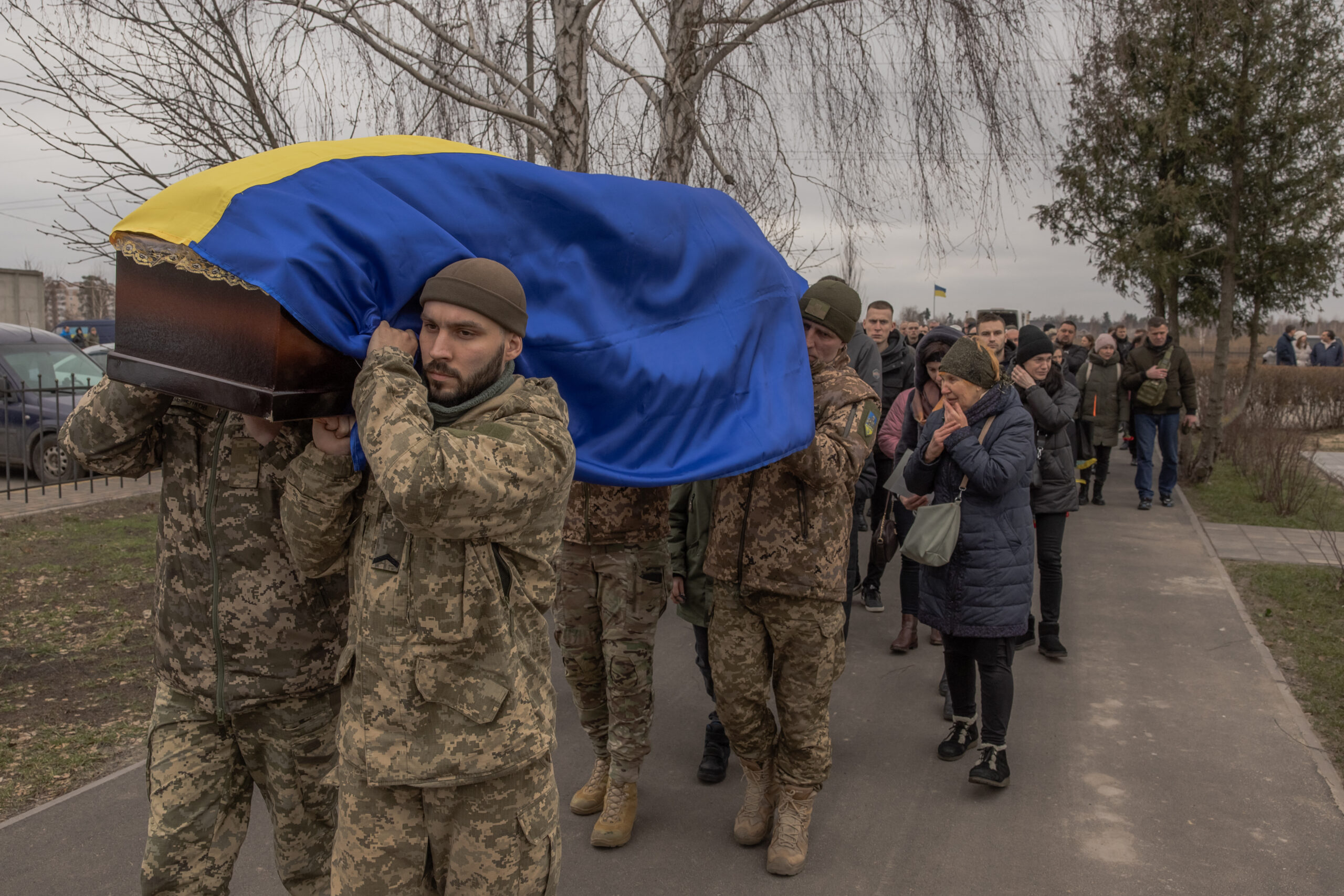On Sunday, President Volodymyr Zelensky stated that 31,000 Ukrainian soldiers have been killed in the war with Russia — the first official announcement concerning Ukrainian troop losses since December of 2022. Many on social media have expressed scepticism about the figure. But what do the facts say?
Zelensky’s 31,000 figure is certainly at odds with other estimates. Earlier today, Russian Defence Minister Sergei Shoigu claimed that Ukraine’s losses amount to 444,000 men. Using a 1:3 ratio of killed to wounded, this would equate to 111,000 deaths. Of course, the Russians have an incentive to inflate their enemy’s losses, so we shouldn’t put much stock in Shoigu’s claim.
Yet even the Americans have given figures far higher than Zelensky’s. Last August, officials told the New York Times that “close to 70,000” Ukrainian soldiers had been killed. Now, we don’t know who these specific functionaries were. Although US policy is to “stand with Ukraine”, some officials may privately favour a dovish strategy and therefore have an incentive to overstate Ukraine’s losses when talking to the media.
The 31,000 figure is also inconsistent with other estimates given by the Ukrainian government. Officials have at various points reported the number of daily troop deaths, with figures ranging from “50–100” to “200–500”. Taking the median of the lower bounds (100) and multiplying by the number of days since the war started yields a figure of 73,300 deaths.
Can we do better than unverifiable estimates put out by officialdom?
Yes, actually. An anonymous website called UALosses has been compiling a database of Ukrainian soldiers killed in the war using publicly available information, such as announcements by local authorities and social media posts by relatives. The database currently has 42,152 entries. As evidence of its reliability, Mediazona manually checked a random sample of 400 entries and found that 96% could be verified. The outlet also concluded that the database contains no more than 500 duplicates.
This provides strong evidence that Zelensky’s figure is an underestimate — to the tune of at least 10,000 deaths. In fact, the website states, “as only data that is available online is considered, the real level of losses is estimated to be considerably higher.”
Another database of Ukrainian soldiers killed in the war (compiled by analysts at the pro-Russian Telegram channel Rybar) is available at the website WarTears. It currently has 69,005 entries. However, these cannot be easily verified as the database does not provide external links.
Interestingly, Mediazona, in collaboration with BBC News Russian, has compiled its own database of Russian soldiers killed in the war, which currently has 44,654 entries. Like UALosses, it states that the “the true death toll is undoubtedly higher.” This suggests the two sides may have sustained a similar number of battlefield deaths, which is not wholly implausible in a war of attrition.
Of course, we don’t know how many entries are missing from each database. Political scientist John Mearsheimer has given theoretical reasons to believe that Ukrainian losses are higher. Russia has far more artillery, which accounts for a large share of battlefield deaths in attrition warfare. And although the attackers typically take more casualties, Ukraine has been on the offensive for much of the last 18 months (in Kharkiv, Kherson and then Zaporizhzhia).
Using a completely different method, I obtained an estimate bigger than any of those discussed so far. Last summer, the Kyiv International Institute of Sociology asked Ukrainians whether any of their friends or relatives had died in the war. Of those questioned, 63% said yes. By combining this figure with analogous figures from a YouGov poll that asked people in different countries whether any of their friends or relatives had died of Covid, along with the actual Covid death rates for those countries, I calculated that up to 188,000 Ukrainians may have died (including civilians).
The figure given by Zelensky is also hard to reconcile with widespread reports of “manpower shortages”. In July of 2022, Ukraine’s Defence Minister Oleksii Reznikov stated that the armed forces had a strength of 700,000 men. Why would there now be “manpower shortages” if “only” 31,000 had died?
It is unclear how many Ukrainian soldiers have been killed in the war. The true number could be well over 100,000. What we can say is that Zelenksy’s figure of 31,000 is likely to be a substantial underestimate.











Join the discussion
Join like minded readers that support our journalism by becoming a paid subscriber
To join the discussion in the comments, become a paid subscriber.
Join like minded readers that support our journalism, read unlimited articles and enjoy other subscriber-only benefits.
Subscribe